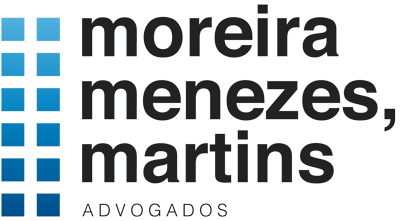Newsletter No. 81 | June 2021
In this edition:
CVM promotes public hearing on proposed alteration of regulations on BDRs
On June 17, 2021, the Superintendency of Market Development (SDM) of the Brazilian Securities Commission (CVM) disclosed Public Hearing Announcement SDM 03/2021 (“Announcement”), to elicit public comments on the drafts of Resolutions to establish new regulations for deposit certificates of equity and debt securities traded in Brazil – Brazilian Depository Receipts (BDRs).
Specifically, the CVM is proposing to issue two new Resolutions: the first for the purpose of replacing the current CVM Instruction 332/2000 (“ICVM 332”), which covers BDRs (“Draft A”); and the second with the objective of establishing complementary modifications of other rules issued by the CVM (“Draft B”).
Recently, the CVM expanded the possibilities for investing in BDRs, by relaxing requirements related to: (i) the securities that can serve as backing for BDRs; (ii) the access to BDRs by investors not classified as qualified according to the specific regulations; and (iii) the foreign issuers that are able to obtain registration with the CVM and consequently issue BDRs underpinned by shares or bonds offered to the public in Brazil (CVM Resolution 03/2020).
The Commission stated in the Announcement that “a series of recent material cases of registration requests of issuers and offerings have indicated inadequacies and fragilities in the existing regulations that had not been considered in the reform.” Therefore, it would be opportune to undertake an ample revision of the existing regulations.
The first proposed alteration consists of modification of the concept of “publicly traded company or the like”, a characteristic required for use of foreign issuers’ securities as backing for BDRs. According to the proposal contained in Draft A, foreign issuers eligible to issue securities to serve as backing for BDRs must have the following attributes: (i) their own legal personality; (ii) liability of their shareholders limited to the issue price of the shares subscribed or acquired; (iii) admission of the shares issued for trading on an organized securities exchange; (iv) maintenance of registration with a local supervisor to be responsible for supervision; (v) delegated administration, with a collegial body as the maximum authority; and (vi) right of the shareholders to vote and receive dividends, possibly limited to some types and classes of shares.
Besides these changes, the CVM stated in the Announcement that some of the main difficulties to authorize the issuance of BDRs are the inapplicability of Brazilian legislation to their issuers, the obstacles to obtaining information and the difficulties to compel observance of legislation applicable to entities located abroad.
For these reasons, Draft A proposes to establish the requirement that foreign issuers must be registered with a local supervisor of the securities market with the effective attribution of supervising them (either by the local supervisor itself or by other means admitted in the jurisdiction in question). Additionally, in cases of BDR Level II and III programs, the depositary shall now have the burden of demonstrating that the local supervisors and the market in which their securities are admitted for trading have the competence to obtain and pass through to the CVM the information identified in the Multilateral Memorandum of Understanding of the International Organization of Securities Commissions (OICV/IOSCO), or another agreement formalized with the CVM.
Draft A maintains the three-level structure of BDR programs, with some adaptations. For instance, in relation of Level I BDR programs, it proposes automatic registration by delivery of the information identified in the rule. The CVM also proposes to allow the conversion of one level to another (always “upward” as stressed in the Announcement).
Furthermore, the CVM stated that its objective is to “realign the original concept of these financial instruments [BDRs] in Brazil and other jurisdictions.” Thus, it proposes that sponsored Level I and Level II return only to being ways for the BDR issuer to establish a presence in the Brazilian market, not a way to obtain resources. The purpose of obtaining funding by means of access to popular savings is satisfied by Level III, which permits the realization of public offerings for distribution (the first of them necessarily an offering registered with the CVM, while the others can adopt the restricted placement effort regime).
In turn, Draft B contemplates alteration of the rules for foreign issuers to obtain registration. At present, these rules are related to criteria of location of assets and origin of revenues of issuers (which in the opinion of the CVM can lead to arbitrary and undesirable results).The proposal contained in Draft B envisions the possibility of foreign issuers obtaining registration through three possible routes:
(i) having a “recognized market” as their main trading market (in line with what is currently defined in CVM Instruction 480/2009);
(ii) having 25% or more of their shares in circulation without interruption and an average daily financial volume greater than or equal to BRL 25 million for at least 18 months before registration; or
(iii) having headquarters in countries whose local supervisor has entered into a specific bilateral agreement with the CVM for the purposes dealt with in the Drafts, namely cooperation, exchange of information and increased effectiveness of oversight and supervisory measures.
The last relevant alteration proposed by the two Drafts is the provision of information by investment entities that are classified as foreign issuers. With the intended alterations, such entities will have to provide information about: (i) fees charged for remuneration of service providers; (ii) list of charges imputable to the issuer; (iii) a report with justifications for any alteration in the fair value of investments; and (iv) composition of the portfolio.
Suggestions and comments to the Drafts can be sent in writing to the Superintendency of Market Development (SDM) of the CVM until July 30, 2021, preferably at the e-mail address “audpublicaSDM0321@cvm.gov.br”.
More information, including the full texts of the Drafts (in Portuguese) can be found at the CVM’s website (https://www.gov.br/cvm).
Legal Framework for startups is enacted
On June 2, 2021, Complementary Law 182/2021 was published, which establishes the legal framework for startups and innovative entrepreneurship, as well as amending Law 6,404/1976, Law 7,713/1988, Law 8,212/1991, Law 11,196/2005 and Complementary Law 123/2006 (“Legal Framework”).
The Legal Framework defines startup broadly as a sole proprietorship, limited liability company, business enterprise, cooperative or professional partnership, characterized by having “applied innovation to the business model or products or services offered.” To be classified as a startup, the entity must also:
(i) have gross revenue no greater than BRL 16,000,000.00 in the preceding calendar year, or when existing for less than a year, revenue less than BRL 1,333,334.00 multiplied by the number of months of activity;
(ii) have been registered on the National Registry of Legal Entities (CNPJ) for at most 10 years; and
(iii) satisfy at least one of the following requirements: (iii.1) declare in its constitutive acts (or amendment thereto) and utilize innovative business models for generation of products or services; or (iii.2) be classified under the special regime called “Inova Simples”.
According to the Legal Framework, startups can receive investments from individuals or legal entities that will not represent equity participation in the startup. In this sense, for the purpose of the Legal Framework, investments in startups will not be classified as equity participation when carried out by means of one of the following instruments:
(i) a contract for option to subscribe shares or quotas between the investor and the startup;
(ii) a contract for option to purchase shares or quotas between the investor and the shareholders or partners of the startup;
(iii) convertible bonds issued under the terms of Law 6,404/1976;
(iv) a loan convertible into equity under an agreement between the investor and startup;
(v) structuring of an undeclared partnership between the investor and the startup;
(vi) an angel investment agreement in the form of Complementary Law 123/2006; or
(vii) other instruments for funding in which the investor (individual or legal entity) does not formally become a partner or shareholder of the startup and/or has not subscribed any equity participation in the startup.
It will be up to the Brazilian Securities Commission (CVM) to issue follow-on regulations regarding the funding forms mentioned above.
As a consequence of making the investment by means of one of those modalities, the investor in the startup will not be considered a partner or shareholder, so that the investor will not be liable for any debts of the startup, including in court-supervised reorganization, and will not be susceptible to disregard of legal personality (“piercing the corporate veil”) or redirection of tax enforcement claims (Arts. 124, 134 and 135 of the National Tax Code). Those limitations of liability, however, will not be applicable in the case of fraud, simulation or other acts of intentional misconduct.
Additionally, the Legal Framework establishes that entrepreneurs that have investment obligations involving research, development and innovation – resulting from grants or delegations established with regulatory agencies – are authorized to comply with their funding obligations by investing in equity investment funds (FIPs) in the categories seed capital, emerging companies and companies with economic production intensive in research, development and innovation.
The Legal Framework has a chapter devoted to the contracting of innovative solutions by government entities. Through a special tender procedure, entities of the direct public administration, independent agencies, and public foundations associated with any of the three branches of the federal, state, Federal District and municipal governments, can contract startups to test innovative solutions for the purpose of: (i) resolving public demands that require innovative solutions with employment of technology; and (ii) promoting innovation in the productive sector by using the purchasing power of the government (through the instrument called “Public Contract for Innovative Solution”).
After the expiry of the Public Contract for Innovative Solution, the governmental entity will be able to contract the supply of the product or service covered by that contract with the same startup, without the need for a new tender.
Finally, the Legal Framework has implemented relevant alterations in the Law of Corporations (Law 6,404/1976), in particular:
(i) the executive board of any company can be composed of single officer (the original wording required at least two);
(ii) companies with gross annual revenue of up to BRL 78,000,000.00 shall be able to: (a) make the publications required by law exclusively by electronic means; and (b) replace physical corporate books by mechanical or electronic registers;
(iii) inclusion in the legal definition of “small company” those with annual gross revenue less than BRL 500,000,000.00; and
(iv) delegation of new powers to the CVM to issue regulations to facilitate access by “small companies” to the capital market, with possible modulation of the obligations: (iv.1) to establish an oversight board at the behest of the shareholders; (iv.2) for intermediation of a financial institution for public offerings of securities; (iv.3) for distribution of obligatory dividends; and (iv.4) to satisfy obligatory publications.
More information, including the full text of the Complementary Law (in Portuguese) can be found at the site of the Presidency of the Republic (http://www.planalto.gov.br/).
- latest news
São Paulo
Rua Gomes de Carvalho, n° 1507, 2º andar – Vila Olímpia
04547-005 – São Paulo – SP
+55 (11) 4210-4010
Rio de Janeiro
Rua Joana Angélica, n° 228 – Ipanema
22420-030 – Rio de Janeiro – RJ
+55 (21) 2523-5960



